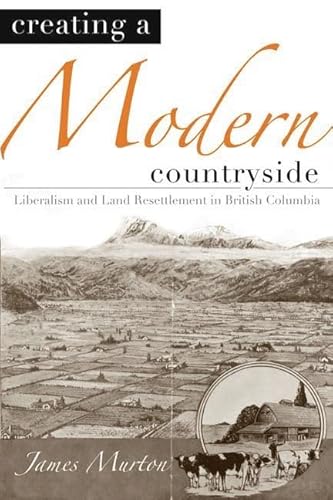Articoli correlati a Creating a Modern Countryside: Liberalism and Land...

Sinossi
In the early 1900s, British Columbia embarked on a brief but intense effort to manufacture a modern countryside. The government wished to reward veterans of the Great War with new lives: soldiers and other settlers would benefit from living in a rural community, considered a more healthy and moral alternative to urban life. But the fundamental reason for the land resettlement project was the rise of progressive or "new liberal" thinking, as reformers advocated an expanded role for the state in guaranteeing the prosperity and economic security of its citizens.
This ideological shift pushed the government to intervene directly in the management of not only society but also the natural environment. As most arable, accessible land in British Columbia was already being farmed by 1919, the state had to undertake environmental engineering projects on a scale not yet attempted in the province. Creating a Modern Countryside examines how this process unfolded, identifies its successes and failures, and demonstrates how the human-environment relationship of the early twentieth century shaped the province we live in today.
Le informazioni nella sezione "Riassunto" possono far riferimento a edizioni diverse di questo titolo.
Product Description
Book by Murton James
Le informazioni nella sezione "Su questo libro" possono far riferimento a edizioni diverse di questo titolo.
(nessuna copia disponibile)
Cerca: Inserisci un desiderataNon riesci a trovare il libro che stai cercando? Continueremo a cercarlo per te. Se uno dei nostri librai lo aggiunge ad AbeBooks, ti invieremo una notifica!
Inserisci un desiderata
